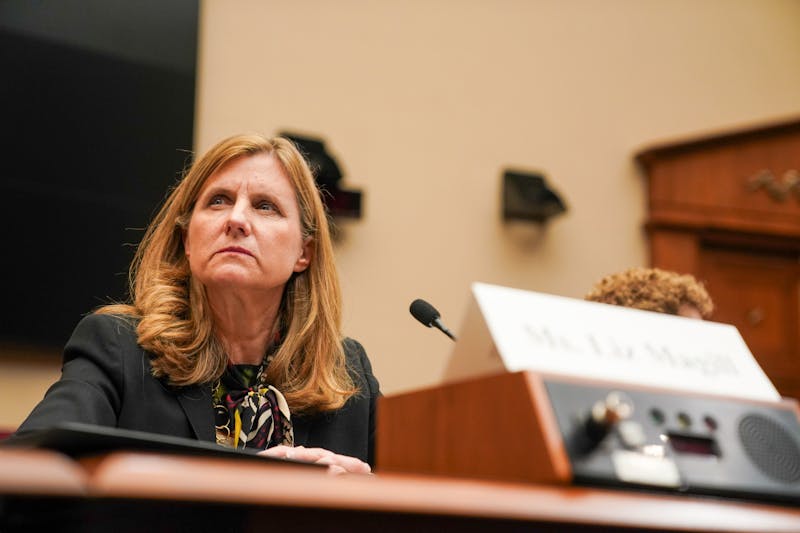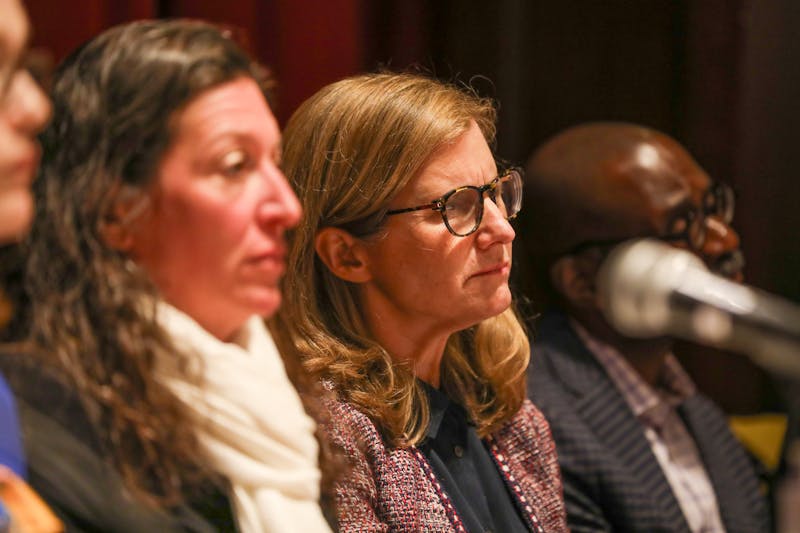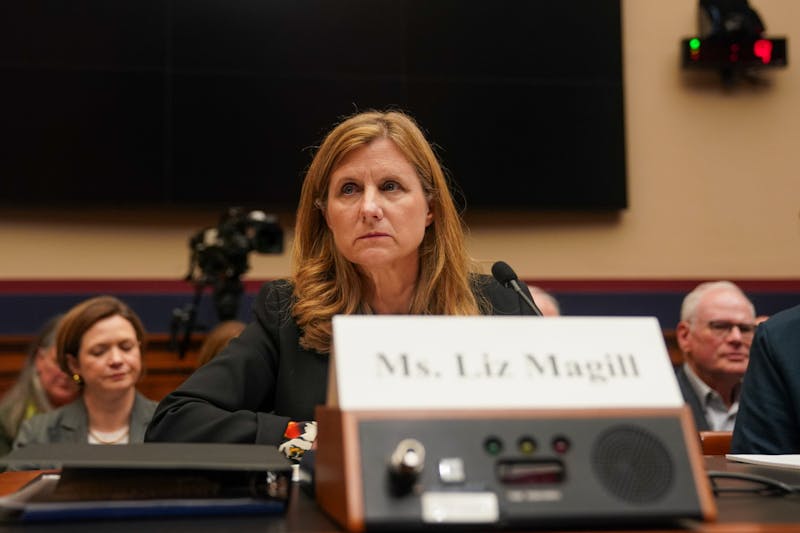
Claire Fagin, Penn's interim president from 1993 to 1994 and the first woman to lead an Ivy League university, has died, according to a University announcement Tuesday morning. She was 97.
Born in New York, Fagin frequently described herself as a "can do" president who wanted to exceed the limitations of her temporary appointment, working to ensure that she was not seen as a "lame duck" leader. During her tenure, she promoted the diversification of Locust Walk and focused in particular on what she called the "strengthening of our Penn community" — continuing the work of a commission announced in the waning days of Sheldon Hackney's presidency.
Fagin publicized the commission's final report, which took shape following a year of town halls, national media engagements, and group sessions asking for the community's opinions on sexual harassment, race relations, and free speech at Penn throughout 1993 and 1994.
"The extent to which the president can influence the bureaucracy [at the University] is limited," she once said. "The perception, however, is that the president's power is almost supreme — that I can fix problems of race, gender and so forth with a snap of my fingers."
Fagin's tenure was dominated by discussion of whether she would keep or suspend a controversial part of the University's racial harassment policy known as the "speech code." Her decision to examine the policy — and then to ultimately replace it by the last day of her presidency — divided campus, The Daily Pennsylvanian reported.
The raging policy debate during Fagin's presidency was sparked by the “water buffalo” incident in January 1993, when Penn charged a first year student for using that term to call at several Black female students outside his dorm. The controversy and its aftermath attracted national media scrutiny over free speech and allegations of "political correctness" at colleges. It also inflamed racial tensions across campus — ranging from a mass boycott of the DP over its news coverage and opinion columns about the incident, to an examination of the policies the University used to respond.
Before becoming Penn's interim president, Fagin was dean of the Nursing School for 15 years and the chair of the Department of Nursing for two years. During her time as dean, the University’s nursing program rose to No. 1 ranking nationwide. She ultimately earned the highest honor in the profession of nursing, and Jameson praised Fagin for her advocacy for improved nursing education, universal health care, and equal gender opportunities in the field.
Following the appointment of then-Yale Provost Judith Rodin as president, Fagin stepped down from the interim presidency on June 30, 1994, and returned to her position as a professor at the Penn School of Nursing until retiring in 1996. Fagin first became a professor in 1965 at New York University.
"I think we're making enormous headway in many things," Fagin said at the halfway point of her presidency. "But one of the limitations of an interim presidency is time. It's difficult, especially with a 'can do' and 'move ahead' personality like mine, to accomplish everything I'd like to do."
The University will host a celebration of life for Fagin in the spring, Interim Penn President Larry Jameson wrote in the announcement.
Jameson praised Fagin's "myriad accomplishments," highlighting her service as a transitionary leader between the presidencies of Martin Meyerson, Hackney, and Rodin.
"Dr. Fagin led during a challenging time and very much served the role of healer, seeking broad community input, and implementing many of the recommendations that inform our policies of open expression, respect, and civil discourse today," Jameson wrote.
The Nursing School's Claire M. Fagin Hall, the Claire M. Fagin Leadership Chair in Nursing, the Claire M. Fagin Distinguished Researcher Award, and the Claire and Sam Fagin Scholarship are all named after Fagin.
Anyone wishing to contribute additional comments should contact author Jared Mitovich (mitovich@thedp.com).
The Daily Pennsylvanian is an independent, student-run newspaper. Please consider making a donation to support the coverage that shapes the University. Your generosity ensures a future of strong journalism at Penn.
Donate












